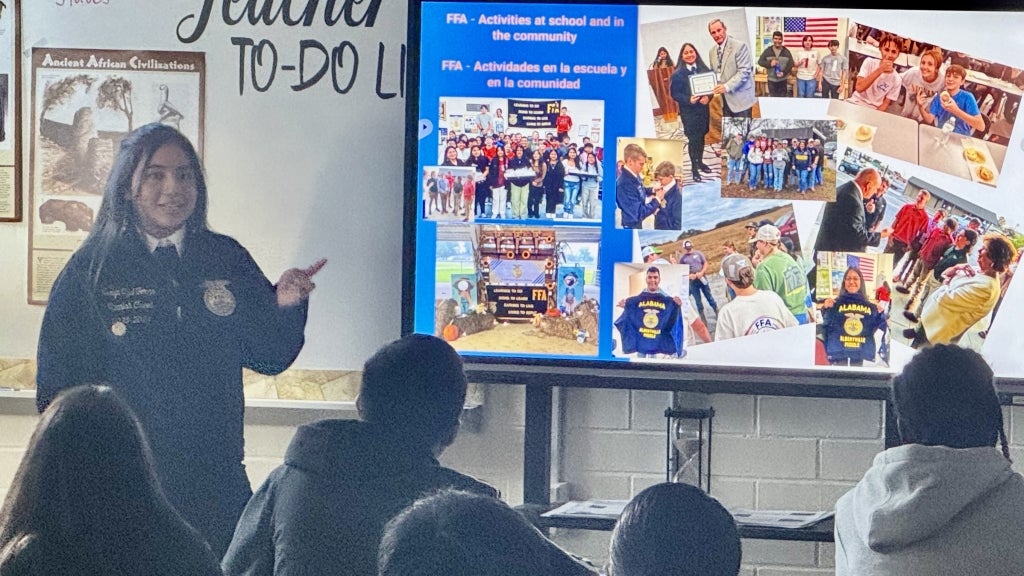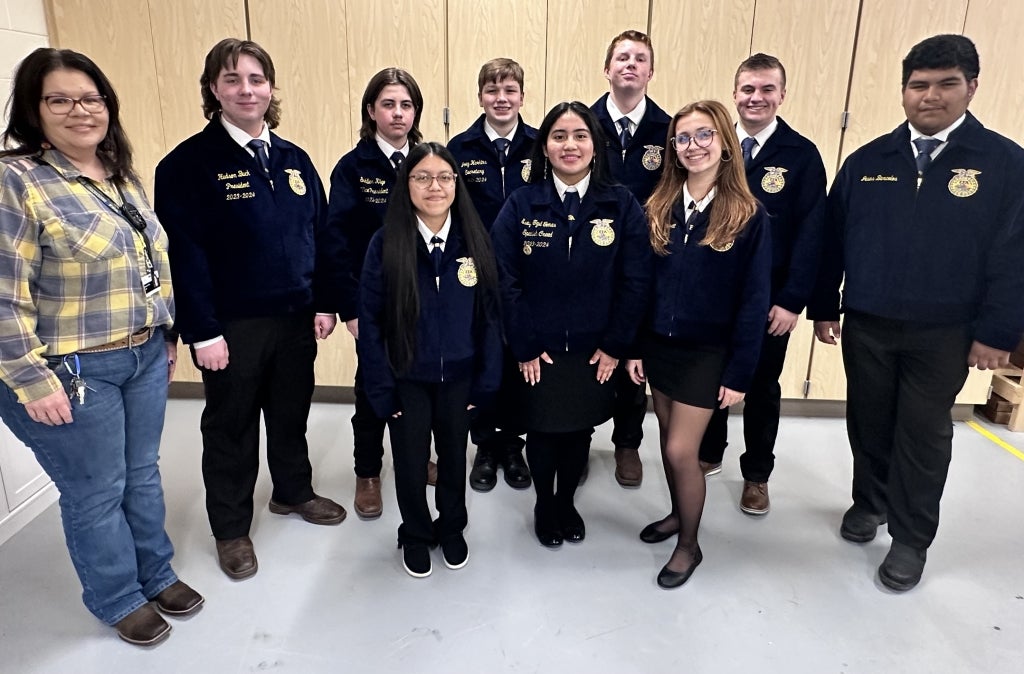
Evelyn Tzul Tomas shares her FFA experiences with students at her school. Photo courtesy of Pam Ancelet.
When bilingual student Evelyn Tzul Tomas realized many of her Spanish-speaking peers were unable to get involved in FFA due to a language barrier, she saw a simple solution that she was uniquely qualified to provide: translation.
“My Hispanic friends were curious about my involvement with Albertville Middle School FFA,” says Tomas, who spent part of her child- hood in Guatemala and is now a freshman at Albertville High School in Alabama and an Albertville FFA member. “They didn’t understand what it was about because they were still learning English. As a result, they couldn’t take advantage of an incredible opportunity.”
With the support of her former advisor, Ramona Weeks, Tomas took on her first translation project as an eighth grader at Albertville Middle School.
“Evelyn took slides I’d created [about FFA] and translated them into Spanish,” says Weeks, who has since accepted an agriscience instructor position at Cullman High School and now serves as the Cullman FFA advisor. “This was the first time we’d been able to reach this particular group of English language learners, and it was the beginning of a new era for the chapter.”

The Albertville Middle School FFA officer team helped Ramona Weeks (far left) and Evelyn Tzul Tomas (center) create an impactful program for agriculture students and FFA members. Photo courtesy of Ramona Weeks.
Today, many of those Spanish-speaking students are finding their niche in FFA. One popular area of interest is the National Spanish Creed Invitational, Weeks says, which was first held as a national-level contest in 2023 during the 96th National FFA Convention & Expo.
“National FFA is committed to inclusivity and has made that clear by continuing to expand the ways members can showcase and celebrate their cultural heritage,” Weeks says.
Both Tomas and Weeks share that inclusionary commitment and are happy to see their efforts bringing new students to FFA.
“We elected officers in the spring of 2024, and several Haitian students applied and now hold officer positions [in the Albertville Middle School FFA],” Weeks says. “It’s an important reminder that agriculture is truly a universal cord that ties us all together, regardless of our differences and individual backgrounds.When you show the door is open for everyone, more people walk through.”
As she reflects on her involvement in bridging the gap between non-native English speakers and FFA, Tomas says it’s been rewarding to help other students discover something so valuable that they might have otherwise missed out on.
“My friends are always thanking me for introducing them to FFA,” she says. “It makes me feel good. It’s one thing to share something you love, but to watch someone else fall in love with it, too – that’s even better.”
A Place to Belong
The National FFA Organization is committed to fostering a welcoming, supportive, engaging and growth-focused environment for all students. Learn more about FFA for All.











